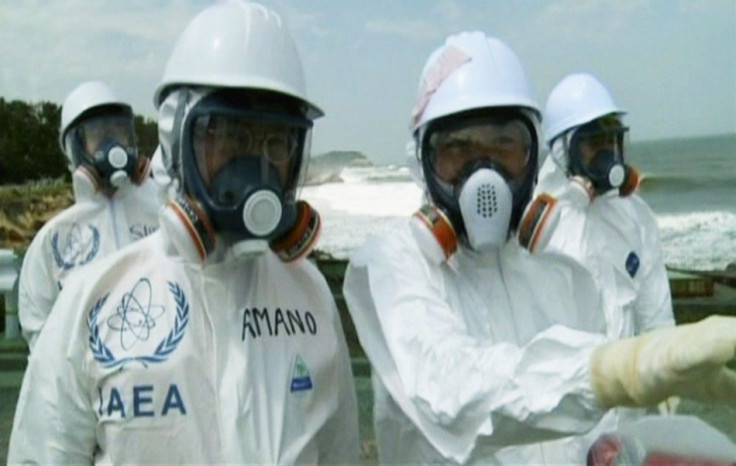Japan Tsunami Anniversary: World Leaders Observe Fukushima Disaster

Sunday marked the one-year anniversary of the Japanese earthquake and tsunami that led to the Fukushima Daiichi nuclear disaster.
The day, as well as the lives of the nearly 16,000 people killed on March 11 and in the months following, was commemorated in Japan with a nationwide moment of silence, as well as vigils and speeches from leaders.
While many communities destroyed near the nuclear power plant have yet to be rebuilt, Japan has been working constantly for the past year to make Fukushima safe and free of radiation.
Just a few days ago, U.N. experts reported that Japan is making enormous progress, United Nations Secretary General Ban Ki-moon said from New York.
In Sendai alone, they are processing 460 tons of waste every day. Across the region, they are recycling. Old debris is being used for new buildings. This is very heartening.
Ban was one of the many world leaders to address the anniversary of Fukushima, an event that not only brought tremendous sadness but also a debate on the safety and future of nuclear energy programs.
Fukushima Daiichi was a very serious accident, but we know what went wrong and we have a clear course of action to tackle those causes -- not only in Japan but anywhere in the world, said Yukiya Amano, director general of the International Atomic Energy Agency (IAEA), which is based in Vienna, Austria.
The U.N.'s nuclear watchdog, the IAEA, has already initiated new plant inspection processes and reporting methods.
In Washington, President Barack Obama sent a message to our friends in Japan, praising the Japanese people for the way they responded to the tragedy.
As we mark one year since the catastrophic earthquake, tsunami, and nuclear disasters in Japan, Michelle and I join all Americans in honoring the memory of the 19,000 victims lost or missing, the president said.
We continue to be inspired by the Japanese people, who faced unimaginable loss with extraordinary fortitude. Their resilience and determination to rebuild stronger than before is an example for us all.
German Chancellor Angela Merkel used the anniversary to tout her country's decision to phase out nuclear power.
We have seen the risks in a highly developed industrial country, risks which we considered impossible - or speaking for myself, I considered impossible, she said in an interview on Saturday.
I think that quite a large part of the [German] population is in favour of the phasing out of nuclear energy by 2022.
Germany, along with a number of other European countries including Italy, Switzerland and Spain, have said they see Fukushima as an example of the unforeseen dangers of nuclear power and have voted to move away from the energy source.
Nonetheless, the closure of eight nuclear power plants in Germany over the past year didn't stop protestors from holding antinuclear demonstrations across the country. Similar protests took place across the world, including in Japan and around the United States.
After Fukushima, France and England notably went in the opposite direction of Germany, deciding to invest more in the newest generation of reactors and in plant safety.
British Prime Minister David Cameron did offer words on condolences on Sunday.
A year ago we were all stunned to silence by the colossal devastation caused by the earthquake and tsunami in Japan. In the face of such tragedy, the Japanese people showed tremendous resilience as they came to terms with losing thousands of their countrymen, and witnessing entire communities being wiped out, he said.
Twelve months on and the Japanese people continue to sustain that courage and determination as they rebuild their communities, their homes and their lives. And I greatly admire and respect the way they have overcome the enormous challenges of recovery.
© Copyright IBTimes 2024. All rights reserved.





















